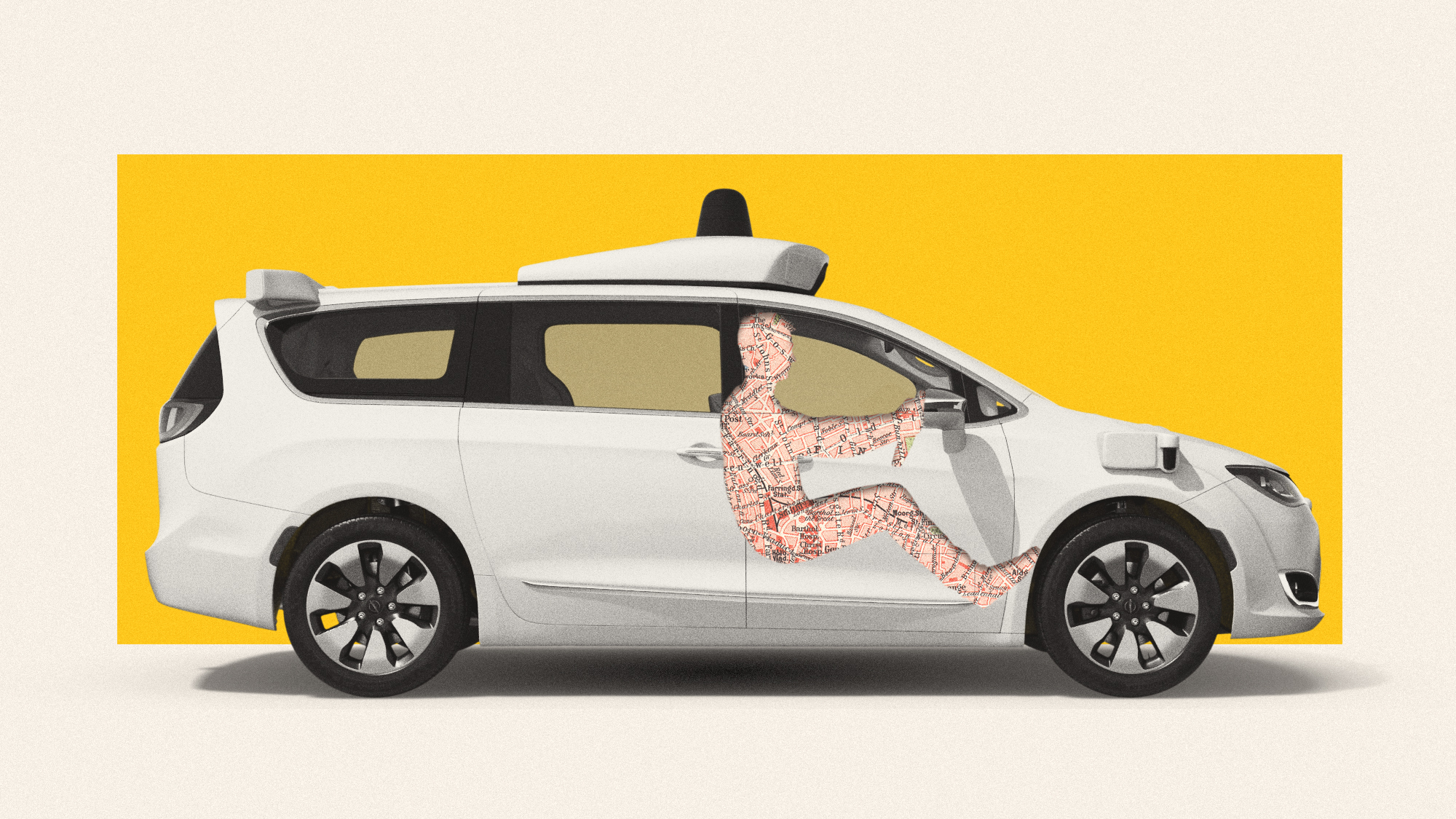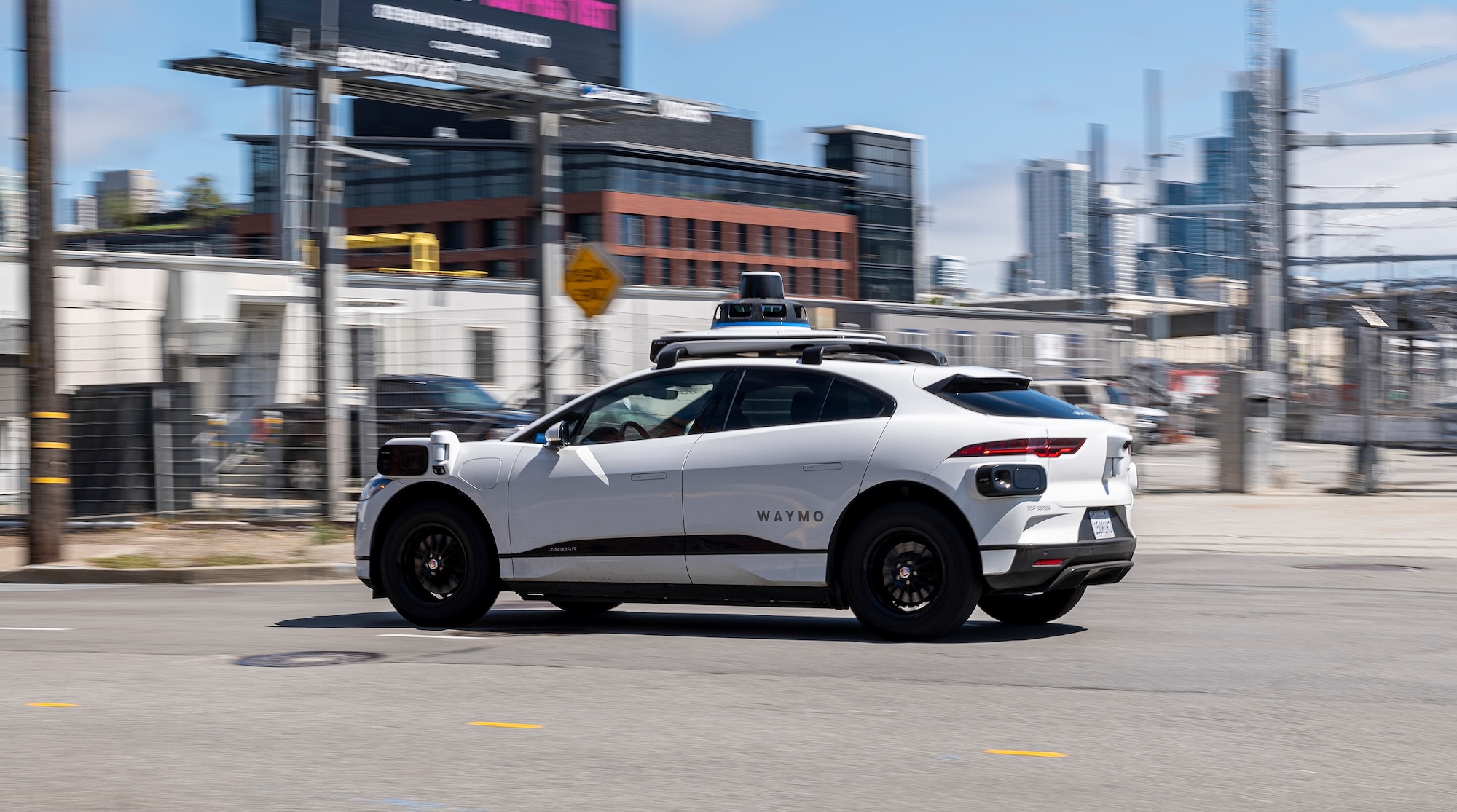Driverless taxis: changing the face of UK transport?
Self-driving cabs launch on London streets next year – and could roll out across the country in 2027

A free daily email with the biggest news stories of the day – and the best features from TheWeek.com
You are now subscribed
Your newsletter sign-up was successful
"Robotaxis" are coming to the streets of London but no one's quite sure if people will hail self-driving cabs as an exciting transport innovation or view them with customary British scepticism.
Uber will partner with UK tech firm Wayve to launch a small number of driverless taxis and shuttle services in the capital next year – after trials beginning in the spring. "Our vision is to make autonomy a safe and reliable option" for everyone, Andrew Macdonald, Uber's president and chief operating officer, told the Financial Times. "This trial in London brings that future closer to reality."
Self-driving vehicles have become a familiar sight in some parts of the US and China but this robotaxi pilot, without safety drivers, will be a first for Britain. The "future of transport is arriving", said Transport Secretary Heidi Alexander. Driverless cars could "bring jobs, investment and the opportunity for the UK to be among the world leaders in new technology".
The Week
Escape your echo chamber. Get the facts behind the news, plus analysis from multiple perspectives.

Sign up for The Week's Free Newsletters
From our morning news briefing to a weekly Good News Newsletter, get the best of The Week delivered directly to your inbox.
From our morning news briefing to a weekly Good News Newsletter, get the best of The Week delivered directly to your inbox.
'Fully autonomous tech'
Tests on autonomous vehicles have already been taking place in the UK for "more than a decade", said The Guardian but, until now, only on vehicles that "needed a safety driver" on board, "ready to take over the controls". A successful pilot of this new "fully autonomous tech" next year could "put the UK in a leading position", and herald a "fuller rollout" across the country in 2027.
For Uber, the commercial advantages of deploying taxis that don't need a driver are obvious. For the government, there's hope of a boost to the economy and an aim to provide "better accessibility" to car services for older people and people with disabilities, as well as people who "live in places with limited transport options", said Carwow. Widespread adoption of (electric) driverless cars could also "reduce emissions" and, if ride-sharing models take off, "ease congestion".
But to reach that point will be a "slow process", said the BBC. Getting a driverless car system up and running requires "people, money and process"; it's "quite a labour-intensive process to roll out this technology", Sven Beiker, a lecturer at Stanford Graduate School of Business and CEO of automotive consultancy Mobility, told the broadcaster. People "need to drive them over and over again" on the streets where they'll be deployed, and avoid "running into major accidents".
'Living in fantasy land'

A Waymo self-driving car on the streets of San Francisco
The whole project could yet be "held up by safety concerns", said the BBC. Google-owned robotaxi firm Waymo, which operates in America, sometimes in partnership with Wayve, says its safety record in the US "is superior to that of human drivers". However, there "there have been hiccups", said The Times, including the case of one man who was "trapped in a disturbed vehicle as it performed loops of an airport car park".
A free daily email with the biggest news stories of the day – and the best features from TheWeek.com
Safety incidents have also seen other would-be self-driving innovators abandon their plans. General Motors jettisoned development of its autonomous Cruise service last year, some months after one of its vehicles hit and seriously injured a pedestrian. The company attributed the decision to "the considerable time and resources that would be needed to scale the business".
And then there's customer uncertainty to contend with. Brits are "among the most sceptical in the world when it comes to having AI in vehicles", according to Deloitte research cited by Carwow. The UK government is actively trying to address that scepticism with "through a multi-pronged approach focused on safety, clear legal frameworks, and ongoing public education", said the car-review site.
What the effect of the advent of driverless taxis will be on London's black-cab and Uber drivers remains "unclear", said The Guardian. But many "appeared unruffled" by the prospect – including Steve McNamara of the Licensed Taxi Drivers Association, who told the paper that autonomous car companies were "living in fantasy land". I am "genuinely not worried. Come back to me in 2040."
Richard Windsor is a freelance writer for The Week Digital. He began his journalism career writing about politics and sport while studying at the University of Southampton. He then worked across various football publications before specialising in cycling for almost nine years, covering major races including the Tour de France and interviewing some of the sport’s top riders. He led Cycling Weekly’s digital platforms as editor for seven of those years, helping to transform the publication into the UK’s largest cycling website. He now works as a freelance writer, editor and consultant.